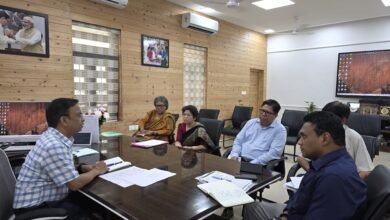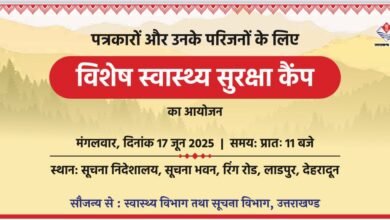जब वजन घटाने की बात आती है, तो सही भोजन का चुनाव आपकी फिटनेस जर्नी में अहम भूमिका निभाता है। एक पुराना सवाल यह है कि वजन कम करने के लिए चावल बेहतर है या रोटी? इस विषय पर कई रिसर्च हो चुकी हैं, और विशेषज्ञों की राय भी अलग-अलग है। हालांकि, ज्यादातर आहार विशेषज्ञों का मानना है कि अगर कोई अपना वजन कम करना चाहता है, तो उसे चावल के बजाय रोटी का चयन करना चाहिए।
चावल और रोटी में क्या अंतर है?
चावल और रोटी दोनों में लगभग समान मात्रा में कार्बोहाइड्रेट होते हैं, लेकिन उनके पोषक तत्वों में बड़ा अंतर होता है। रोटी में चावल की तुलना में अधिक फाइबर, प्रोटीन और माइक्रो-न्यूट्रिएंट्स होते हैं, जिससे यह वजन घटाने के लिए अधिक उपयुक्त बनता है।
रोटी के फायदे:
– फाइबर और प्रोटीन से भरपूर: रोटी फाइबर और प्रोटीन का अच्छा स्रोत है, जो लंबे समय तक पेट को भरा रखती है, जिससे आप कम खा पाते हैं।
– कम कैलोरी: एक 6 इंच की रोटी में केवल 71 कैलोरी होती है, जबकि 1/3 कप चावल में लगभग 80 कैलोरी होती है।
– ब्लड शुगर नियंत्रण: रोटी धीमी गति से पचती है, जिससे ब्लड शुगर लेवल स्थिर रहता है और यह टाइप-2 डायबिटीज रोगियों के लिए फायदेमंद होती है।
चावल के फायदे और नुकसान:
– जल्दी एनर्जी देना: चावल में अधिक कार्बोहाइड्रेट होते हैं, जिससे यह तुरंत एनर्जी प्रदान करता है।
– कम फैट: चावल में स्वाभाविक रूप से फैट कम होता है, जो इसे दिल के लिए स्वस्थ विकल्प बनाता है।
– हाई कैलोरी और सरल कार्बोहाइड्रेट: चावल जल्दी पचता है और ब्लड शुगर लेवल में तेजी से वृद्धि कर सकता है, जो वजन घटाने के लिए कम उपयुक्त है।
रिसर्च क्या कहती है?
रिसर्च के अनुसार, रोटी फाइबर, प्रोटीन और माइक्रो-न्यूट्रिएंट्स में चावल से बेहतर है। चूंकि यह धीरे-धीरे पचती है, इसलिए यह वजन घटाने के लिए अधिक कारगर है। दूसरी ओर, चावल जल्दी पचने वाला और सरल कार्बोहाइड्रेट है, जो तेजी से ब्लड शुगर लेवल बढ़ा सकता है।
निष्कर्ष:
यदि आपका लक्ष्य वजन कम करना है, तो रोटी को अपनी डाइट में शामिल करना बेहतर हो सकता है, खासकर अगर आप सही पोर्शन का ध्यान रखें। हालांकि, चावल भी ऊर्जा का अच्छा स्रोत है, लेकिन इसे नियंत्रित मात्रा में ही लेना चाहिए।




